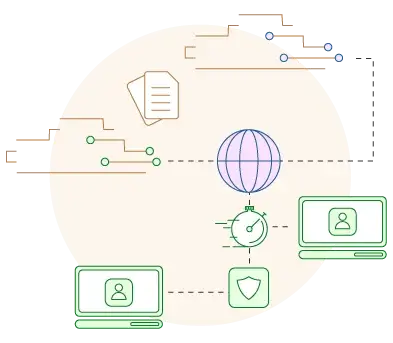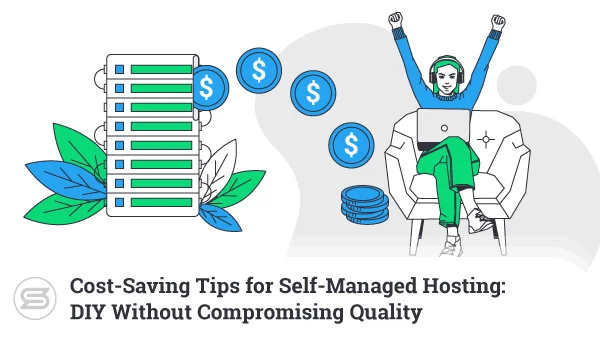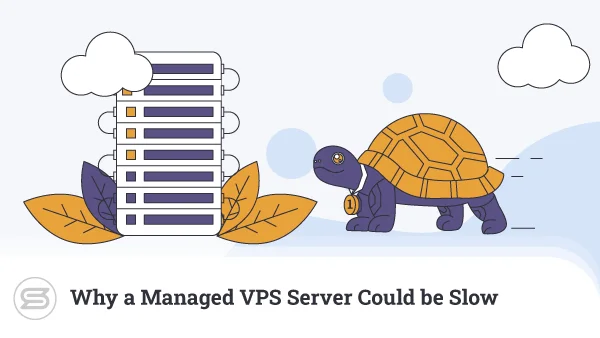What is the Best Hosting for Web and Mobile Apps
Web and mobile apps have become watchwords of the day for developers, businesses, and consumers alike. Thanks to increasing internet penetration rates, a much larger proportion of the world is online today. This makes it a ripe market for those seeking to offer Software as a Service platform (SaaS). Because of the unique way they work, special considerations have to take effect when seeking the best hosting for web and mobile apps.
What is SaaS?
Most traditional software requires you to make use of an installer to deploy an application on your device. Compared to this, SaaS achieves similar end results while offering additional benefits.
In SaaS, users do not need to install local instances of apps but can access them directly via the internet. SaaS providers ensure the remote accessibility of the applications and can even take on the responsibility of running them on your behalf.
Because of this, the load on local machines is greatly reduced. By making use of SaaS solutions, you no longer have to meet demanding application prerequisites. In fact, powerful apps can even be run on lightweight devices such as smartphones.
The important thing to understand about SaaS is that it’s like a one-stop-shop. You do not have to worry about either the application or the infrastructure required to run it. All you need are access permissions, a web browser, and internet access.
Types of SaaS
Thanks to the flexible nature of the technology, SaaS can be deployed in many use cases. Solutions have become so common that you are very likely a SaaS user even without knowing it. Some key fields that demonstrate the power of Software as a Service include:
- Communications – Even within the communications field alone, SaaS covers so many areas. On a consumer level, instant messaging often makes use of this technology. There’s also the business side of it – collaborative services allow multiple users to easily share and collaborate on documents, which is a no-brainer for larger teams.
One example of a communications SaaS is Google Docs. One of Google’s most prominent services allows the use of word processing features via web browsers. It is simple, powerful, and comes at no cost for the end user.
- Web hosting and apps – Whether you’re running an app-driven website or an ecommerce operation, you are most likely making benefit of a SaaS platform as well. This is especially true for online stores since many of their features would otherwise be limited.
One good example of SaaS in web hosting is WordPress.com. Serviced by the core WP team, the platform offers a fully hosted solution for fans of the most popular CMS. - Accounting – Instead of enforcing strict security standards on individual users, SaaS benefits both providers and consumers. Accounting SaaS providers only need to focus on security while clients profit from the reduced usage requirements and lower prices.
Quickbooks is an example of traditional accounting software that has adopted the SaaS model. Today, it’s even simpler to use, removing the need for hardware keys and other complex security protocols.
What is a Web App?
Web apps are sometimes confused with SaaS. While they have common aspects, web apps only form part of the SaaS equation. They are available for use but not as a complete service. If you’re planning to run a web application, you need to handle infrastructure requirements independently.
Perhaps the clearest example of this, would be the case of WordPress.com discussed earlier. WordPress itself is a content management system, which is just one type of web application. It only becomes a SaaS when bundled with web hosting, pre-deployed, and ready to use.
Types of Web Apps
Similar to SaaS solutions, web apps have become so pervasive, they cover almost all fields today. From forum engines to content management systems and online stores – there is an app for almost all needs.
Some examples include:
- Content Management Systems – These are designed to allow users to create and manage dynamic, content-rich websites easily. By combining the features of application and database, custom content can be built on-the-fly to suit the ever-changing needs of webmasters.
- Ecommerce apps – Similar to CMS solutions in many ways, ecommerce apps come with advanced capabilities that allow them to facilitate transactions online. It should be noted that the payment process often utilizes a SaaS platform as well.
- Forums – Instead of asking users to hand-code forums, there are suitable apps for these types of websites. Forum applications offer foundations that handle messaging and the structure needed to operate a forum with enough customization and configuration options.
Criteria to Choose Hosting for SaaS or Web Apps
Whether you are planning to offer a SaaS platform or run a web application, one key area of focus is web hosting.
Some of the main areas of consideration include:
- Resources – Any form of SaaS or web app will require much more in terms of resources compared to regular static websites. This means you have to find a solution with plenty of system resources, including CPU power, RAM, hard drive space, and monthly bandwidth.
- Security – Since you’re serving customers, the responsibility of website security falls on your shoulders. While part of it depends on the web app you choose to deploy and configure, another aspect is the type of hosting environment you’ve chosen for it.
- Reliability – Any form of customer service needs to be stable and constantly available. Failing to meet these standards can not only result in you losing visitors and damaging your reputation.
- Support – While you may be able to fix app-related issues, things can sometimes go wrong with web hosting as well. You need to ensure your hosting partner has a strong support team and clear disaster recovery operations in such instances.
How VPS Might Help SaaS or Web Apps?
Web hosting comes in various shapes and forms – at the lower end of the scale is shared hosting, while dedicated servers occupy the premium end. To meet the demands of SaaS operations or run a web app, your hosting solution must be flexible enough with its environment and growth options.
This means that, while shared hosting can be much cheaper to run, it is seldom optimal for the rising demands of modern web apps. This makes it even less likely to be helpful from a SaaS perspective as such platforms require even more resources to run smoothly.
Virtual Private Server (VPS) hosting can be a good middle-ground for SaaS providers or those seeking to efficiently run web apps. This type of hosting can bring:
Better Stability
Because VPS accounts are custom-built, they can become the ideal basis for your SaaS or web app. You only need to deploy and configure the server to fit your exact requirement, reducing the risk of instability or other potential glitches.
Improved Loading Speeds
Since web apps need more resources to run, VPS solutions can be quite helpful. All VPS plans come with dedicated resources so they can be called on at any time. Unlike shared environments, idle resources on VPS plans will never be utilized by another client on the same machine.
Better Security
In most cases, running a SaaS or web application means you’ll be handling user data. The isolated nature of the VPS helps safeguard that data much better than shared hosting.
When SaaS or Web Apps Need to Switch to VPS and Why?
If you’ve tried to operate a SaaS or a web app on shared hosting – you may have noticed it’s technically possible in some use cases. Still, there are high chances you will some irregularities in the way your site or service behaves.
Some indications you may need to switch to VPS hosting include:
- Long load times
- Intermittent service outages
- App crashes
In shared hosting, resources are mainly allocated on a first-come-first-served basis. This means if another site occupies the resources you need, your site performance will suffer. In cases like this, you need to consider a move to VPS instead of merely upgrading your plan.


Possible Issues When Switching to VPS
Since you’re going to run a SaaS platform or make use of a web app, you likely have some technical knowledge. However, what you’ll need to know when switching to VPS may differ quite a bit.
VPS hosting essentially hands you control of an entire server after its initial configuration. After the setup, you have the freedom to configure the rest of the environment, so it suits your web app the most.
Among the things you’ll need to be familiar with are web servers, networking, server security, and more. While these are not insurmountable obstacles, they add a layer of complexity to running your own SaaS or web app.
To avoid these potential issues, consider getting Managed VPS hosting instead. These high-end VPS accounts come with all the mentioned benefits, plus professional upkeep from the web hosting provider.
Conclusion
While offering much in terms of features, operating a SaaS or web app can be very taxing on system resources. VPS plans give you the agility to scale up resources on-demand and utilize them much more effectively. Unless your solution is designed to serve a tiny volume of users – shared hosting will be insufficient in most cases.
Frequently Asked Questions
How does SaaS work?
SaaS means complete services for the end user. If you plan to offer Software as a Service, your aim is to ensure both the application and a stable infrastructure to run on. This increases the requirements you need to consider when picking a web hosting service for your SaaS.
Is Saas the same as a web app?
Web apps are a part of SaaS solutions that come without an infrastructure. They can be deployed and used on any hosting service that fits their installation and support requirements. Some web apps, such as WordPress, are offered as both SaaS and a standalone app.
Is it expensive to host a web app?
The cost of hosting may differ depending on the requirements of each client. Compared to static websites, web app-driven sites typically require more resources, potentially increasing the cost of web hosting.
Can I use shared hosting to run a web app?
Yes, it is possible. However, most web apps will not work optimally since shared hosting does not guarantee resource availability. If those are occupied when your site needs them, loading times will be delayed, resulting in a poor visitor experience.
Do mobile apps need hosting?
Mobile apps do not necessarily need web hosting. It depends on the nature of the app – some are designed to work as standalone solutions, while others may need to interact with online servers for full feature availability.



